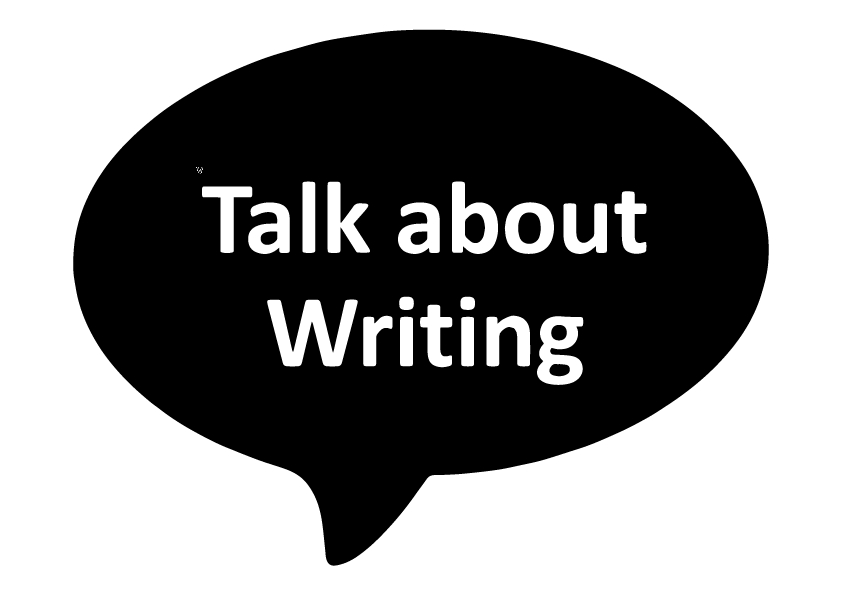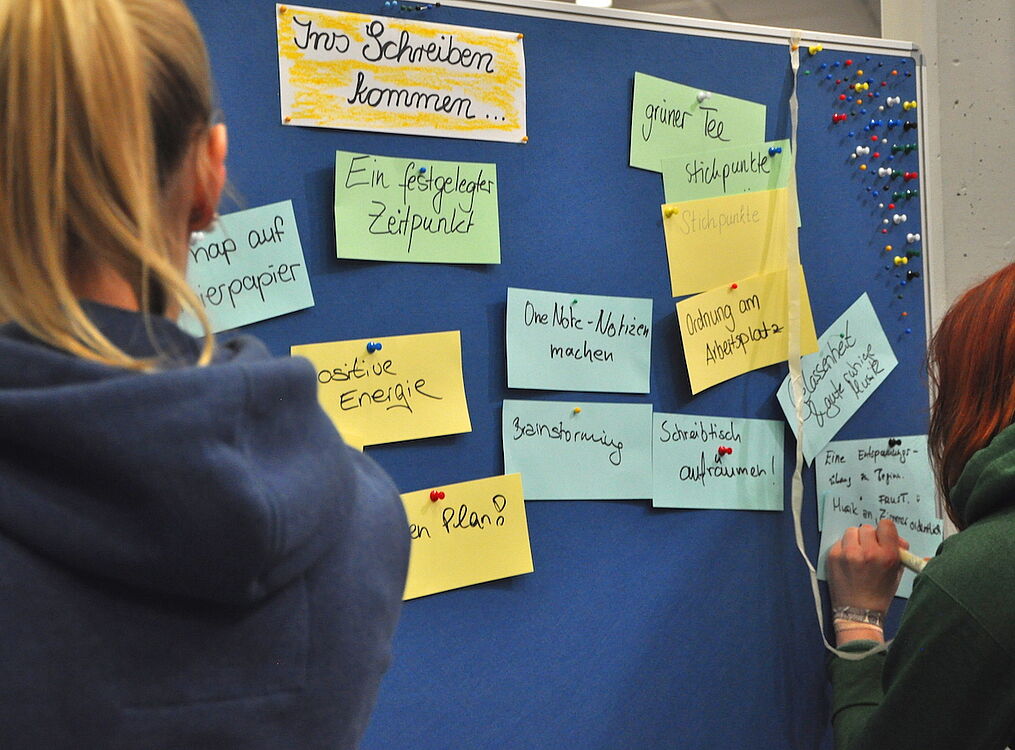International Symposium

Date: May 23-25, 2024
Location: Paderborn University, Germany
Organizers: Dr. Andrea Karsten, Sabrina Schmöckel & team
Kompetenzzentrum Schreiben, Paderborn University
Program
Take a look at our program and find an overview of all planned contributions in our Abstract Booklet.
Registration
Find out about registration options for the symposium.
Arrival
Traveling to and from Paderborn.
Accomodation
Where to stay during the symposium.
Paderborn
Find out more about beautiful Paderborn and what to do during your stay.
Talk about writing
How do we talk about professional and academic writing in different contexts and from different perspectives? What images of writing do we produce, and what kind of consequences does this have? For whom?
The international symposium “Talk about Writing” aims to trace research on the constructions and understandings of writing that emerge in academic as well as other discourses, conversations, and texts about writing.
Talking and writing about professional and academic writing takes place in a variety of areas: research on writing in different domains, writing instruction (both in higher education and other contexts), joint professional writing of various kinds, peer review and academic as well as non-academic publishing, academic supervision and assessment – and many more. These discourses about writing enable and constrain the respective practices and have a variety of implications for the writing subjects, e.g., for students, early career researchers, or employees, to name but a few.
Furthermore, recent developments in the field of AI-assisted text generation and analysis are likely to effect fundamental changes of existing academic and other professional literacy practices. In the current debates, we have to be careful not to produce limited and decontextualized images of writing and writers. Therefore, it is key to reflect on how we talk about AI-assisted writing in order to critically address and accompany both current and future professional and academic literacy practices.
Thematic areas
The symposium will be located at the intersection of writing studies, higher education, linguistics, sociology, psychology, and other related disciplines. The presentation formats (extended presentations, workshops, data sessions, and panels) are intended to foster dialogue and exchange between domains, disciplines, and conceptual perspectives.
Contributions can highlight different facets of talk about writing, including but not limited to the following thematic areas.
Reflective approaches to writing studies:
How actors in the field of writing studies research and write about writing constructs “writing” as an object of study. We encourage contributions that further the existing dialogue about theoretical perspectives in the multidisciplinary field of writing studies and that present a self-reflective and critical take on how these perspectives inform images of, e.g., the writer in a certain area of practice.
Discursive methods in writing research:
A number of discursive methods are used regularly in qualitative approaches to writing research. The symposium invites to explore the discursive nature of, e.g., interview and focus group studies, reflexive and constructive approaches to grounded theory, voice analysis, documentary method, and think aloud as well as other introspective or retrospective methodologies. The workshop and data session formats provide appropriate frames for an extended methodological exchange among participants.
Writing instruction, writing consultation, and writing center work:
Talking and writing about writing is the characteristic trait of writing center work, of writing instruction in academic and professional fields, and of individual writing coaching and consultation. We encourage contributions that present insights into these fields of practice and take a co-participatory, practice research, or reflective practice approach to professional activities of writing support.
Higher education and studies of epistemic cultures:
We invite critical, reflective, non-essentialist, and non-normative approaches in higher education and studies of epistemic cultures that highlight the role of writing as a discursive and socially constituted object of study in these scholarly fields. Contributions might address the social conditions as well as the norms for writing in different domains, approaches to ‘write differently’, and issues of social inequality and discrimination related to writing.
Presentation formats
Our presentation formats are:
- extended presentations (30 min. plus 15 min. of discussion)
- workshops (90 min.)
- data sessions (90 min.)
- panel discussions (45 min.)
We deliberately refrain from highlighting single contributions as keynotes to encourage a dialogue on equal footing for all participants.
Contact
Do not hesitate to contact us: talkaboutwriting@kw.upb.de.
We look forward to meeting you in Paderborn!
Andrea Karsten & team

